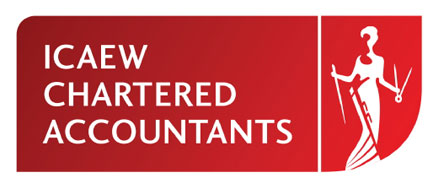Cyprus Tourism: Diversification Creates New Investment Opportunities
October 05,2012
After steady but slow growth in recent years, 2011, saw a phenomenal 10 per cent increase in the number of visitors to the island. This, coupled with the strengthening of links with major tour operators, a significant expansion in the number of flight destinations and the astute development of niche tourism in Cyprus all indicate that the sector will continue to flourish in the years ahead.
For the first part of the 20th century the charms of Cyprus remained one of the region’s best kept secrets, and while a small but exclusive group of writers, artists and members of European aristocracy chose to holiday on the island, the wider public knew little about the unique attractions that Cyprus has to offer. This changed with the advent of mass airline travel and the convenience of the package holiday when Cyprus became synonymous with value-for-money ‘sun and sea’ vacations. With around 340 days of sunshine a year, this continues to be a crucial element in the Cypriot tourism product. But government efforts to bring diversity into the industry and attract high spending visitors to the island throughout the year are also beginning to bear fruit.
Consolidation of Core Strengths
From a peak of 2.7 million visitors in 2001, numbers visiting Cyprus have decreased steadily reflecting prevailing trends: the fallout from September 11th, the global economic downturn, and the decline in the value of sterling relative to the euro, which has deterred some visitors from the UK. Against this background, the Cyprus Tourism Organisation (CTO) launched a twin-pronged strategy, both to consolidate its traditional markets and to broaden its appeal. Links with major tour operators such as Thomson and Thomas Cook were strengthened. At the same time, negotiations began to increase the frequency of flights to Cyprus – especially during the peak summer months – and to expand the network of flight destinations, which now includes a number of regional cities such as Bologna, and Ekaterinburg. The opening of new state-of-the art airport terminals at Paphos and Larnaca, in 2008 and 2009 respectively, also played a key part in the decision of three of the major ‘no-frills’ airlines, Monarch, easyJet and Ryanair, to begin regular summer services to and from Cyprus. Government moves to increase the sector’s competitiveness by reducing landing fees have also paid off. Ryanair announced in January that it is to base two aircraft at Paphos, servicing 15 European destinations including; Frankfurt Hahn, Krakow, London-Stansted, Oslo, Pisa, Rome, Stockholm, Thessaloniki and Budapest.
Quality Improved
The Cypriot tourism industry continues to aim for excellence across the board and has begun a period of rigorous self-assessment as it strives to improve the quality of its core product with a renewed attention to detail. Visitors to the countries of the southern Mediterranean as a whole increased by 7 per cent in 2010 and in order to keep a competitive share of that market Cyprus needs to maintain its high quality value for money offer. Where, for example, a hotel’s star rating might once have been awarded on the basis of (amongst other things) the size of its swimming pool, the island’s tourism authority now gives equal consideration to the quality and condition of the facility on offer when making its assessment.
The combined elements of this strategy have already begun to produce results. In 2011 2.39 million visitors came to the island, an increase of 10 per cent on the previous year and the hope is that this figure will continue to increase. Cypriot revenue rose correspondingly, from 1.57 billion euro in 2010 to an estimated 1.77 billion euro in 2011, an increase of 13.6 per cent, and analysts expect a further small increase in revenue in the years ahead, as the industry continues to build on its core markets.
Despite a reduction in visitor numbers due to the impact of the recession in the UK, the British holidaymaker continues to play a vital role in the success of Cypriot tourism, accounting for 1 million visitors to the island – around 43 per cent of the total – in 2011. Russian and German markets are smaller, but are growing in significance, accounting for around 14 per cent and 6 per cent of arrivals respectively during the same period. The Scandinavian countries, Sweden, Norway and Finland, are also regarded by those in the industry as a priority market for the ‘sun and sea’ holiday experience that has consistently proved such a successful formula for Cyprus.
Diversification
The island’s tourist industry has been overtaken in recent years as ‘the engine of the Cypriot economy’ by the rapid expansion of both the financial services and construction sectors. Tourism now contributes around 10 per cent of GDP accounting for the direct employment of nearly 35,000 people. Whilst the essential value-for-money package holiday will continue to provide the bulk of tourist related employment, the sector is committed to diversifying and expanding the appeal of the Cyprus tourism product, largely through the development of niche tourism which can continue throughout the year. As yet this is still a relatively small area, but one in which there is significant investment potential.
The jewel in the crown of the Tourism Ministry’s diversification strategy has to be Limassol Marina, an innovative new facility designed to encourage higher-spending visitors to the island. The project, which will be opened in autumn 2012, will include exclusive five-star residential units, each with its own mooring facilities, along with additional berths for up to 600 vessels. The marina will include commercial space for shops and restaurants – all within easy reach of the centre of Limassol.
On a more modest scale, the CTO has been steadily encouraging the growth of high quality special interest tourism and has been instrumental in developing inland agrotourism. Attractions range from tours of the picturesque wine-making regions and the opening up of cycle routes through the mountains, to Cyprus’s unique heritage of Byzantine churches. In addition, sports and health and conference and incentive tourism have been targeted for further development in the CTO’s latest 2011-2015 strategy.
Sports and Health Tourism
Sports tourism in particular has strong potential for growth since figures indicate that sports visitors are ‘repeaters’ who will return to the island again and again and generally prefer to come to Cyprus outside the peak tourist months of June – August. Cyprus has recently hosted several international sporting events such as UEFA cup qualifying matches, the Cyprus Rally, the Cyprus Women’s Cup (an international women’s football championship) and the CEV International Beach Volley Tournament along with world class athletics competitions. All these events have contributed to a palpable aura of competitiveness and success on the island. In addition, a number of overseas football squads such as Dynamo Moscow, Levski Sofia, and IFK Goteburg, along with the national sides of England, Scotland and the Netherlands choose to hold their winter practice seasons in Cyprus. New training facilities have been built in Limassol to cater for increased demand, and more are under development in Larnaca. Central to these successes have been the incentives and support offered by the Cypriot authorities who will – subject to the fulfilment of the relevant criteria – meet up to 30 per cent of costs. It is hoped that increased numbers of track and field athletes, as well as those involved in triathlon, swimming and shooting, will soon follow their lead and consider Cyprus their winter training base.
Golf tourism is another area which has expanded rapidly in recent years. The island now boasts four 18-hole golf courses of international standard and plans are underway to build 10 more as demand increases for golfing holidays where sunshine can be guaranteed. Financial investment in the expansion of golf tourism in Cyprus is particularly welcome. Other areas where investment is being encouraged include the development of international size swimming pools, track and field facilities and cycling routes.
Additional strands of special interest tourism being developed include health and well-being holidays, with the establishment of exclusive spas and hotels to pamper and indulge the visitor. One small but particularly successful niche area, which is experiencing unprecedented growth, is that of medical tourism. Cypriot medical services have a world-class reputation, providing a high quality of patient care in a technologically advanced environment. The absence of a medical school on the island, until the establishment of the faculty at the University of Nicosia in 2011, has meant that Cypriot doctors have been obliged to train overseas. As a result the vast majority of medical practitioners on the island are graduates of leading medical schools in the United States or Britain and can hold their own amongst the best in the world. Every year thousands come to the island for procedures ranging from cosmetic dentistry, to fertility treatment or major organ surgery. Patients are attracted by affordable health care, the reassurance of knowing that the sector is subject to stringent EU regulations and, not least, by the opportunity to recuperate in a warm temperate climate.
Conference Venue
As a meeting point between the cultures of East and West, Cyprus has long been recognised as an ideal conference venue, one that is geographically well positioned to facilitate dialogue and discussion. The island’s sophisticated infrastructure and its reputation as a safe and secure location, combined with an incentive programme to encourage conference hospitality, make it an attractive choice for conference and incentive tourism, a niche area that is being expanded.
Cyprus may no longer be one of the Mediterranean’s best kept secrets, as the 2.39 million people who visited it last year will testify, but there is still considerable scope for promoting the island to new and previously untapped markets, targeting high quality niche tourists seeking special interest holidays. The proven success of the Cypriot tourism industry in adapting to change and meeting the challenges posed by the economic recession should satisfy even the most sceptical of investors that this is one economic sector that is going from strength to strength.



